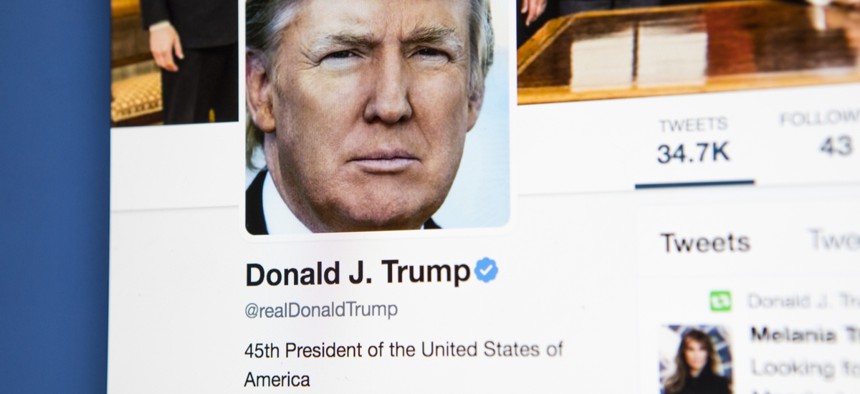How Government Agencies Can Protect Their Social Media Accounts—And Employees

chrisdorney/Shutterstock.com
Do public officials have the right to block users who insult them or post scathing comments publicly? At least one court case says no.
Jaime Stein is the industry principal for government at Hootsuite.
Government employees are facing an interesting dilemma. They're trying to meet citizen demands for more personal forms of engagement with government. Yet, when they adopt social media channels to do this, they open themselves up to public feedback and criticism.
As a public official, do they have the right to block users who insult them or post scathing comments publicly? Apparently not. In July, the American Civil Liberties Union asked Kentucky Gov. Matt Bevin to stop blocking people from following his social media accounts; Michigan state government accounts were reported to have blocked more than 800 Twitter handles, including @POTUS; and the El Paso Police Department's public affairs staff blocked users from the department’s Twitter and Facebook accounts.
» Get the best federal technology news and ideas delivered right to your inbox. Sign up here.
This culminated recently when a federal court judge ruled against a Virginia official who banned a user from accessing her Facebook page. The results of this case pose serious consequences that could reach as far as the White House—a similar suit has been filed against President Donald Trump with regards to his personal Twitter @realDonaldTrump.
These recent developments should not take away from the huge benefits social media brings to both government officials and the citizens they serve. Never before has government had such a powerful and efficient solution for engagement; however, there are some best practices to ensure they (and their citizens) are protected online.
Implement policies that include rules of engagement.
Government agencies already have policies in place for social media usage, but they generally only cover the use of official government profiles. While many agencies are addressing personal social media use in employee contracts, most just completely ban the use of personal accounts from disseminating government information. This is unfortunate, as employees can be great advocates to share information organically on social media.
Instead of banning employee activity outright, agencies should outline proper rules of engagement at all levels of government. These rules should cover things like when and how to engage with the public, and how to respond to negative posts or complaints.
Ensure your people have training.
The rules of engagement should be communicated in mandatory training sessions for all staff. Special social media training should be developed for senior officials with online public personas—similar to the traditional media training that these officials receive.
In addition, there are some excellent online social media training courses and many of them are free of charge. Agencies should research the most applicable ones and encourage employees to complete any that make sense for their roles.
Leverage a listening tool for proactive engagement and rumor mitigation.
A survey released last month by Morning Consult found that 42 percent of American adults seek out their news through Facebook, compared to just 20 percent who rely on traditional news.
So how do government employees stay on top of all the information that could be circulating about them or their agency? There is no way to do this manually while completing other daily duties. Luckily, there are many tools that automate this.
Setting up Google alerts is a good place to start but it doesn’t capture social media activity. For social media monitoring, agencies should implement enterprise solutions for listening, analytics and public sentiment checking. It also helps to streamline and coordinate social media across departments, agencies and public officials.
Put account security measures in place.
All it takes is one enterprising hacker—or impersonation account—to put your reputation at risk. To protect yourself, ensure everyone obtains verified accounts from the main social media networks. Next, make sure two-factor authentication is enabled. Automate monitoring for impersonator accounts and signs of hijacking using a professional solution. Finally, and most importantly, use a social media management solution for extra security and to prevent password sharing.
Social media is still a relatively new communications method for government. Policies and laws have not been fully developed to govern every scenario, so cases like that of the Virginia official are bound to arise for the foreseeable future. Government officials and agencies alike can take a proactive approach by staying informed of social trends and putting measures in place to ensure security and compliance while remaining accessible to their citizens.
NEXT STORY: How Apple iPhone Updates Add Value to Mail





